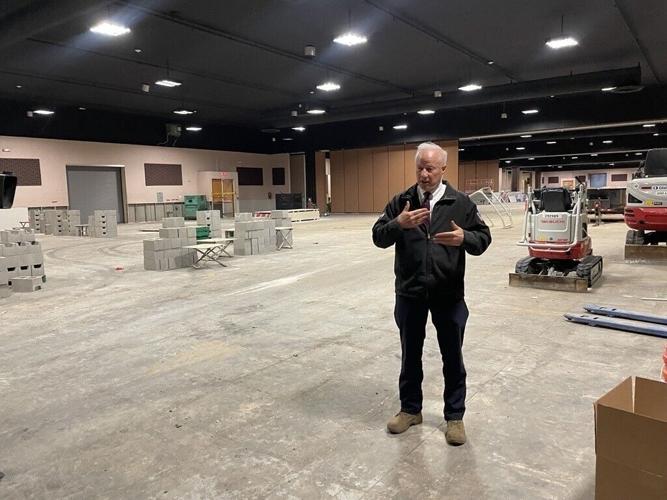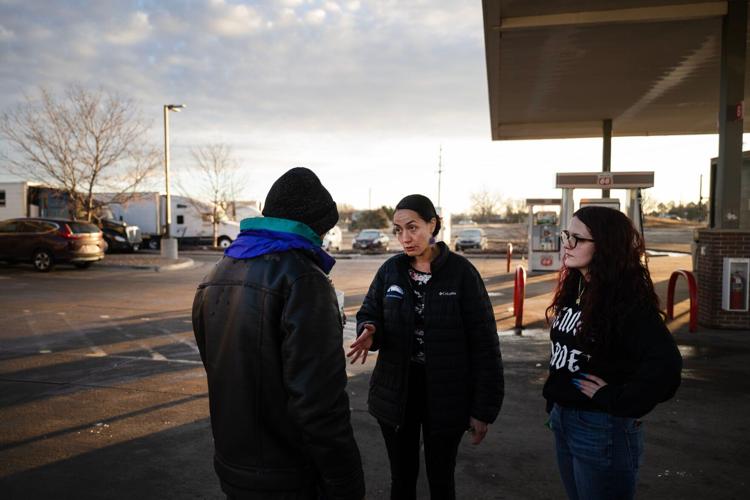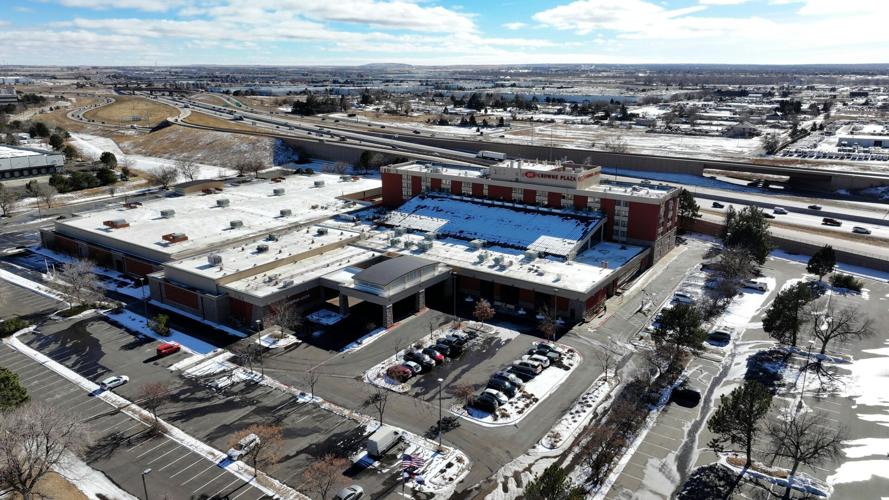Aurora mayor points to homelessness report to reinforce city’s ‘tough love’ approach
Aurora’s top elected official cited a think tank’s report on Thursday to reinforce his belief in the “work-first” approach to homelessness, insisting that the “housing-first” approach used in Denver does not work.
The Common Sense Institute report, authored in part by former councilmember Dustin Zvonek, compared the two broad approaches to homelessness. The report said Colorado leans into the latter and needs to shift its focus to be successful.
Zvonek added Thursday that state and federal funding tends to favor “housing-first” programs, so work-first programs don’t get the funding they need to succeed.
“If we want real progress statewide, we need to fix the system,” Zvonek said. “Federal dollars must be flexible, cities shouldn’t be punished for pursuing things simply because it doesn’t fit within the housing-first door.”
Undergirding Denver Mayor Mike Johnston’s promise to end homelessness is an approach popular among the city’s homeless advocacy groups: “housing first.” The idea is to respond to an individual’s most acute need first, which is housing, and then offer other services later.
One group explained the concept this way: “The main distinction is that treatment is not a pre-condition of receiving housing.”
“Treatment services,” the group said, “are provided after housing is obtained, once the treatment provider has gained the trust of the individual and is ready to accept treatment.”
Aurora, on the other hand, took notes from strategies used in Houston, Texas, and borrowed from “work-first” and “treatment-first” models by providing anyone in need with emergency services but offering more robust services to people who are participating in the workforce and receiving any behavioral health treatment they may need.
“We do have two very different approaches,” Mayor Mike Coffman once said of the two cities’ strategies during a business event two years ago.
The Common Sense Institute report contrasted Denver and Colorado Springs and concluded that the former has been unsuccessful, while the city to the south, which uses a work-first approach, has seen “real progress.”
The report said Denver spent $16 million on homeless people who remained in “unsheltered” status after leaving a city program that Johnston launched in 2023.
According to the Metro Denver Homeless Initiative‘s point in time homeless count, Denver County saw an increase from 5,818 homeless people in 2023 to 6,539 homeless people in 2024.
Meanwhile, El Paso County saw a decrease in homeless people, from 1,302 to 1,146, during the same period, according to the Pikes Peak Continuum of Care.
“The evidence is that the housing first model is not working,” Zvonek said on Thursday. “There needs to be a structured path to self sufficiency.”
Aurora has adopted the strategy similar to that in Colorado Springs, an approach Coffman called “tough love.”
The city’s approach is important to “show the country there’s a different way of doing things,” Coffman said.
“Tough love” includes the opening of the Regional Navigation Campus, which will consolidate services for homeless people in one location.
The campus, which is slated to open this year, will have three tiers, the first of which will be a “low-barrier” shelter with congregate housing for people who need services but aren’t working with case managers yet.
Tier two will require people to work part time and participate in programs for addiction, mental health recovery and job training, and will have more private, higher quality living conditions.
The third tier, for those working full time but not yet ready to find housing on their own, will have private rooms.
In conjunction, the city will start operating a new court specifically meant to deal with low level offenses by homeless people, Coffman earlier said.
The court is not operational yet but soon will be, he added.
In recent years, Aurora has banned camping along the I-225 corridor. In February, the city passed an ordinance that gets rid of requirements to provide shelter options and 72-hour notice before sweeping homeless encampments.
In a recent housing policy committee meeting, Emma Knight, Aurora’s homeless programs manager, said the team is in the process of renovating the navigation campus site. This has included pursuing a building permit, preparing to add additional plumbing and removing carpeting where an emergency shelter will be.
Knight said she expects the campus to open and be fully functioning at the end of this year.
In recent months, the city has used the navigation campus building for emergency weather shelter and have seen an average of 111 people every night, with a maximum of 144 in March.
Knight said the use has been a “good sign” that people want the services the campus offers.














